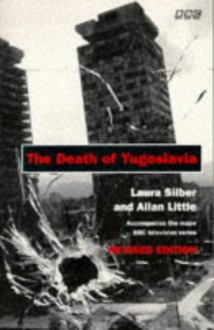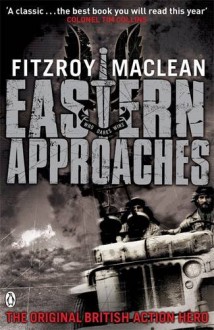
 Some of my updates still seem timely, but this edition, published not long after the war had ended, feels a bit like educated guesswork. That might make for exciting expose if it were written as a building mystery, but the book is clearly intended to be research and documentation.
Some of my updates still seem timely, but this edition, published not long after the war had ended, feels a bit like educated guesswork. That might make for exciting expose if it were written as a building mystery, but the book is clearly intended to be research and documentation. 
Hello, my children. I am writing this on a pittance of sleep, with my head full of Shakespeare and obnoxious thesis words like ‘perfunctorily,’ so if I don’t make much sense, please forgive me.
At any rate, not to be derailed from my goal of reading 70 books this year, I picked a short one for this week, knowing I’d be buried in an avalanche of thesis work. So I read Téa Obreht’s The Tiger’s Wife.
The Tiger’s Wife is a difficult book to summarize, because it seems to be trying to tell ten stories at once: a Balkan folk tale about an immortal man, the life story of the narrator’s grandfather, a provincial incident in which an escaped tiger haunts a rural village, the narrator’s experience vaccinating impoverished children in some far-flung corner of her fictitious country, and the origin story of every character to appear in between. This is not to say that there isn’t some overarching narrative thread – there definitely is, but sometimes it’s hard to find.
Natalia – the narrator – tells a number of disconnected anecdotes about her grandfather and growing up in an unnamed ‘City’ during an unnamed war. Every other chapter, her grandfather ‘interrupts’ to tell her a story about either (a) the deathless man, a sort of fairy-tale character who helps shepherd lost souls to the next life or (b) the titular ‘tiger’s wife,’ a deaf-mute girl who befriends the escaped tiger stalking the village of Galina. The stories are all interesting enough, but they never seem to go deep enough. The Tiger’s Wife was, for me, an oddly passive reading experience. I was curious to find out what happened next, but I didn’t really care.
To be fair, this could have had something to do with how distracted I’ve been this week. However, I think this is one of those rare cases where the book actually wasn’t long enough. By the end of its short 337 pages, we know absolutely nothing about the narrator except that she’s a doctor who likes Bob Dylan. Instead of spending more time letting us get to know her, Obreht spends whole chapters telling us about the life of the apothecary of Galina, the butcher, etc., when the real story isn’t about them. It wouldn’t be entirely unfair to say that The Tiger’s Wife is a collection of short stories masquerading as a novel. Yes, there is a plot that carries the reader from beginning to end, but it clearly isn’t what Obreht had the most fun writing. And she is having fun – her writing flows well and is easy to read. But it’s not remarkable.
I think the other problem with this book is that there’s no real sense of danger, even though, ostensibly, there’s a war on for a good part of the book. Natalia has nothing to lose, which makes her story kind of casual. The worst thing that could happen is she won’t figure out what her grandfather was doing in Zdrevkov and she’ll carry on with her life. It reads like a fairy tale, but with all the peril removed.
Still, I enjoyed parts of this book – partly, I think, because I spent a summer living in Romania and much of the folklore was familiar. It’s an interesting cultural read, if not a literary one, and it does paint a fascinating picture of the war-torn countries that make up the former Yugoslavia. However, I think Obreht would be better suited to writing a collection of modern Balkan fairy tales. The novel doesn’t seem to be quite her style.
2.5 stars. Find it on Goodreads here.

A tripartite memoir of intrigue, travel, and military adventure, relating the author's experiences as a diplomat in the 1930's USSR, as a member of the early SAS (part of the UK Special Forces) in WWII North Africa, and finally as an important liaison to the Partisans in Yugoslavia, his two previous experiences providing the background for this capstone mission.
The early part of the book is largely concerned with his travels in Soviet Central Asia. This section was probably much more interesting when the area was largely closed to foreigners; his descriptions are fairly stereotypical, though as someone who knows little about the area, they had some interest. Maclean can be quite the stereotypical Englishman himself in his generalizations and attitude to foreigners, at one point saying he's always found it helpful to shout when there's a language barrier. However, this isn't so bad as it could be, as he is genuinely interested in the culture and history of the areas he visits throughout the book.
This first section is the dullest, but it does show two strengths that continue throughout the book- his descriptions of logistics, of how to get places, dodge pursuit, and carry supplies, and his capsule histories of the individuals he meets on his journeys, which are interesting and telling. It also has a great set-piece description of the Trial of the Twenty-One and Bukharin's confession. It's clear from the narrative why it was this particular speech that inspired Darkness at Noon, though given that the novel came out before this book, I wondered if there was some retrospective influence on Maclean's conclusions. Either way, it's a tense, atmospheric piece of writing.
The second section was surprisingly interesting to me as a person who has little interest in the military. It mainly describes two raids on Benghazi (a city which a few years ago was a lot less famous!). He shows the truth of the old proverb that combat is ninety-percent waiting and ten-percent sheer terror. The amount of preparation and travel time behind brief and unsuccessful or narrowly successful raids is amazing, as is the way in which missions that fail in their original goals can still contribute positively to the larger strategy. This is the most fast-paced, absorbing section.
The final section is the most detailed and interesting. Maclean parachutes into Yugoslavia as an envoy to the Partisans (as an Italian, I'm accustomed to calling all resistance groups "partisans," and so find the Yugoslavia usage in which it refers to a specific, Communist-led group confusing), and helps persuade the British to switch support from another, less-effective resistance group, the Chetniks, to the Partisans (though according to Wiki, intel from decoded signals was the main factor in the switch in support). He then coordinates a massive support effort for the Partisans, staying in Yugoslavia with them for most of the time till the fall of Belgrade. This section is fascinating for obvious reasons, though it's clear that Maclean idealizes the Partisans and especially Tito (understandably given the circumstances under which he interacted with them). The descriptions of the Balkans are also a bit stereotypical. There's another interesting set-piece on the history of Yugoslav dynastic rivalry, with lots of dry humor. The earlier thread about logistics becomes deeper and the capsule histories of various Yugoslavs he meets add interest ("It was an exaggeration," complains a passed-over prince about the scandal that knocked him out of the line of succession, "to claim that he had killed his valet."). This section is a bit slower than the previous one, being about a long, slow build-up rather than a specific mission. But it serves as an appropriate culmination for the entire book, what all the previous elements had been leading up to.
The book is well-written and well-structured, with the ending bringing the story full circle. Its main weaknesses are that the least interesting section comes first, that Maclean's descriptions can be overly stereotyped or idealizing and thus less interesting, and that there isn't much "character development" (in quotes as this is nonfiction) with it being hard to keep track even of recurring characters. It's clearly a personal memoir rather than history with an attempt at objectivity, but in general I find memoirs more interesting. I wouldn't reread this book and it didn't live up to my high expectations, but I'm glad I read it and recommend it to those interested in irregular warfare and in WWII resistance movements.